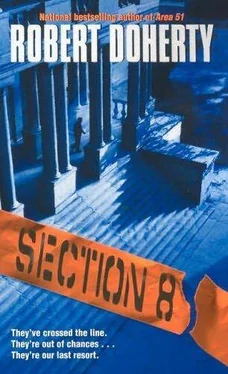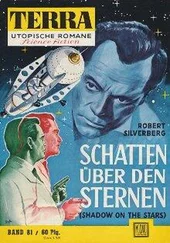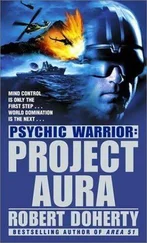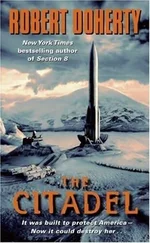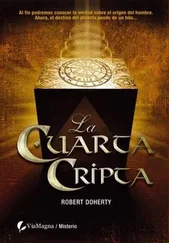Five hundred feet.
Tai was having a hard time keeping them stable and oriented. Their bodies were beginning to tumble, but Vaughn knew there was nothing to be done about that as he took the length of nylon strap and pressed it against the snap link on the front of Tai's combat vest, trying to press it through the gate. Tai realized what he was doing and grabbed his hand with both of hers. The nylon popped through the snap link.
Vaughn's other hand grabbed his reserve handle. Out of the corner of his eye he could see the ocean surface. Close, way too close. He pulled the rip-cord grip on the reserve and the chute spewed out. Vaughn was jerked upright, then cried out in pain as the lowering line ripped out of its casing, burning down the inside of his right thigh, and then abruptly stopped at its full length, and he was jerked again as Tai came to a halt at the end of it.
She hit the water barely two seconds later, then Vaughn splashed down hard next to her.
Jolo Island
Abayon was staring out to sea, looking at the moon reflecting off the water. He felt bone-tired. Telling the story to Fatima had exhausted him, and there was more still to tell. He sighed as he heard the door behind him open and then quietly swing shut. Fatima walked up to him with a bottle. He took several deep drafts before putting it down.
"Where was I?" he asked, although he knew quite well where he'd left off.
"The Americans who parachuted into Japan," Fatima said.
"Ah, yes. One of the Americans was killed right there on the drop zone. Beheaded by a Kempetai officer. The officer turned to behead Martin, forced him to his knees, but another officer stopped him, saying there was a need for living Americans. Martin and the other survivor were taken into custody, thrown in the back of a truck, surrounded by guards, and driven to a Kempetai base. There, to Martin's surprise, his partner was greeted as if he'd been expected – by a well-dressed Japanese man, obviously someone with great power, given the way even the Kempetai officers were treating him."
"Who was this other man?" Fatima asked.
"David Lansale was his name. Here's the interesting thing, and what made Martin wonder what was going on: Lansale turned to Martin and said he was sorry, then left in the company of the mysterious Japanese man. Martin was then taken away, eventually transported to Manchuria and 731. He never saw or heard of Lansale again. He knew he'd been betrayed, but he had no clue why."
"And you do?"
"I do now, to an extent."
Abayon fell silent, and Fatima patiently waited.
"I was in that field, tied to the stake for five days," he finally said.
"Martin died quickly. On the second day. I heard the others crying out. That was bad. But the worst was the smell. Whatever they used on us made us vomit and unable to control our bowels."
Abayon stayed quiet for a few seconds, recalling that horrible field of death.
"I was the last one alive. I could sense it on the morning of the fifth day. They had taken about half of the prisoners away to do with them as they had done to my wife. Others, who died on the stake, they left to rot. They were timing the deaths. In the middle of the fifth day, the soldiers came once more. They wore their protective suits. Gas masks. Many, I could tell, were not happy with their task. It was just as easy for them to be infected.
"A few went up and down the rows of stakes, confirming that all were dead. I knew this was my only chance. I slumped forward against the ropes holding me. I had vomit all over my chest and down my legs. Excrement and urine soiling my pants. I held my breath so the soldier coming along my line would not see my chest move. They didn't want to touch the bodies to check pulses. They were confirming death just by looking for breathing.
"The soldier was in a rush. He looked at me for no more than ten seconds, then moved on the next one. He made it to the end of the line, then joined his comrades. They drove away in their truck. Several hours later, just before nightfall, a truck came back. This one contained the prisoners whose job it was to clear the field. Take in the harvest, so to speak.
"The Japanese used Korean laborers for this. The Japanese did not care if the Koreans became infected. Once more I pretended to be dead. I nearly was, so it was not difficult. I was very sick. I was running a fever. I was dehydrated. Almost delirious. A man cut me loose from the stake and dragged me to the cart behind the truck, which was full of bodies. He threw me in. I weighed perhaps eighty pounds after months of captivity and because of whatever they had infected me with.
"They threw bodies on top of me. Meruta. Logs. And that is how we were tossed in that cart. I lay there, buried among the dead. I almost wished I was."
Again Abayon fell silent.
"How did you survive?" Fatima asked.
"Hate," he said.
"And love."
"I don't understand."
"Even though my wife was dead, I still loved her," Abayon said.
"That kept me going. And because I loved, I hated those who had killed her. That gave me strength. All I thought of while I was in that cart was revenge. They drove to a ditch and dumped us in. I lay there until they were long gone, then clawed my way out. Through all the bodies. I crawled all night. Just to put distance between myself and that place of death."
He turned from the ocean and stared at his goddaughter.
"After that, you can well imagine that I wanted to know everything there was about Unit 731. And about that American."
"I don't understand the connection," Fatima said.
"Neither did I at the time," he replied.
"When I escaped from 731, the war was winding down. The Japanese in the camp released all their plague-infected animals. Over thirty thousand people died in the Harbin area in the next couple of years because of that.
"But here is where it gets interesting and lines begin to cross," Abayon continued.
"The good Dr. Ishii was captured by the Americans. And did they put him on trial for the war criminal that he was?" Abayon did not wait for an answer.
"Of course not. He – and the information he had – was too valuable. In exchange for immunity from prosecution, he gave the Americans the results of the so-called field tests – the tests my wife and I and hundreds of thousands of others had been part of. Valuable data on biological warfare that the Americans wanted.
"Thirty members of 731 – none of the important ones – were put on trial as part of a big show. They were brought before the Allied War Crimes Tribunal in Yokohama on the eleventh of March, 1948. Charges ranged from vivisection to murder to wrongful removal of body parts."
Abayon shook his head.
"Wrongful removal of body parts – can you believe there was ever a need for such a charge?
"Twenty-three were found guilty. Five were sentenced to death. None of those were ever executed, though. By 1958 every single one of those convicted was free. The Russians weren't so nice. Those members of 731 they captured, they executed. I suppose it was because the Americans got Ishii and all the good data.
"There is even a shrine in Japan dedicated to the members of Unit 731. Can you believe that? No collective sense of guilt for what they did. It is only in the last few years that the Japanese even acknowledged what they did in Nanking.
"But back to Lansale. He was supposedly an operative of the OSS – Office of Strategic Service. But that was just his cover. And the mission of the other two men who accompanied him was obviously a sham also. It took me many years to find out who Lansale met with and why. He was an envoy from a secret organization sent to negotiate with the Japanese. Even though the two countries were at war, there were those on both sides who were looking past the war and to the future."
Читать дальше
